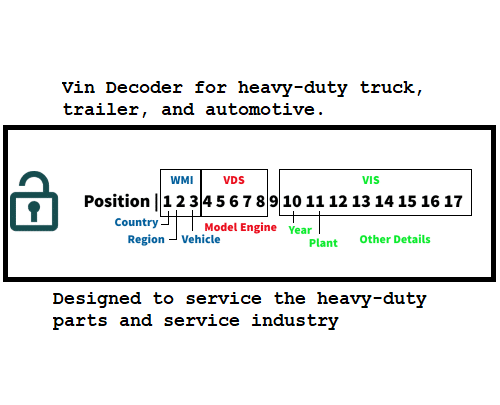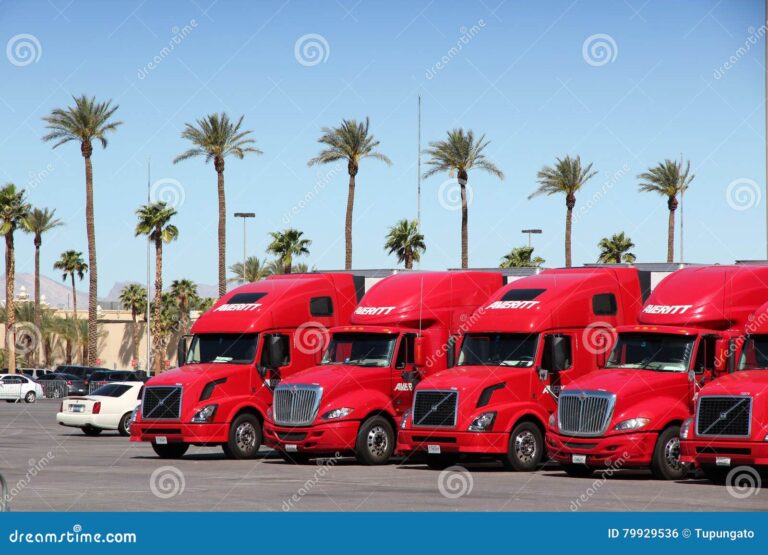Free Commercial Truck Value By VIN: Unlocking Your Asset’s Worth
Free Commercial Truck Value By VIN: Unlocking Your Asset’s Worth cars.truckstrend.com
In the dynamic world of commercial trucking, understanding the true value of a vehicle is paramount. Whether you’re a potential buyer, a savvy seller, a meticulous fleet manager, or an insurance professional, having a reliable estimate of a commercial truck’s worth is crucial for informed decision-making. While professional appraisals exist, many are unaware that a significant amount of valuable information, including a foundational understanding of a truck’s market value, can be accessed for free, simply by utilizing its Vehicle Identification Number (VIN).
This comprehensive guide, "Free Commercial Truck Value By VIN," will delve into how this unique 17-character code can unlock insights into a truck’s past and present, helping you ascertain its approximate market value without spending a dime. We’ll explore the importance of the VIN, the resources available for free valuation, the factors influencing a truck’s worth, and the practical applications of this knowledge in various scenarios.
Free Commercial Truck Value By VIN: Unlocking Your Asset’s Worth
Understanding the VIN and Its Role in Valuation
The Vehicle Identification Number (VIN) is more than just a serial number; it’s a truck’s unique fingerprint. This 17-character alphanumeric code provides a wealth of information about a specific vehicle, encoding details about its manufacturer, make, model, year of manufacture, assembly plant, and even specific features like engine type and Gross Vehicle Weight Rating (GVWR).
How the VIN Impacts Value:
Every digit and letter in the VIN holds a piece of data that can directly influence a truck’s market value:
- Manufacturer and Make: Identifies the brand and model, which inherently carry a certain market reputation and value (e.g., Freightliner Cascadia vs. a lesser-known model).
- Model Year: Newer trucks generally command higher prices due to less wear and tear, updated technology, and stricter emissions compliance.
- Engine Type and Specifications: The power, fuel efficiency, and emissions standards of the engine (e.g., Cummins, Detroit Diesel) significantly affect desirability and value.
- Gross Vehicle Weight Rating (GVWR): Determines the truck’s capacity, which dictates its utility for various jobs, directly impacting its value for specific industries.
- Body Type and Chassis: Whether it’s a tractor unit, dump truck, box truck, or flatbed, the base configuration sets its market niche and value.

By decoding these elements, free online tools and resources can begin to build a profile of the truck, comparing it against a database of similar vehicles to generate an estimated market value.
Why Seek Free Commercial Truck Value by VIN? Benefits and Applications

Accessing free commercial truck value by VIN offers numerous advantages across various stakeholders:
- For Buyers:
- Informed Negotiation: Provides a baseline value, preventing overpayment and empowering you to negotiate effectively.
- Initial Due Diligence: Helps quickly identify trucks that are significantly overpriced or might have hidden issues based on their basic specifications.
- Budgeting: Assists in setting realistic budget expectations before diving deep into the market.

- For Sellers:
- Competitive Pricing: Helps set an attractive yet realistic asking price, speeding up the sales process.
- Transparency: Demonstrating that your price aligns with market estimates can build trust with potential buyers.
- Marketing Strategy: Understanding the market value helps highlight unique selling points that justify the price.
- For Fleet Managers:
- Asset Valuation: Aids in tracking the depreciation of fleet vehicles for accounting and tax purposes.
- Trade-in Assessments: Provides an initial estimate for trade-in value when upgrading or downsizing the fleet.
- Maintenance Planning: High-value trucks might warrant more proactive maintenance to preserve their worth.
- For Insurance and Financing:
- Basic Reference Point: While not a substitute for professional appraisal, it offers a quick preliminary valuation for policy discussions or loan applications.
- Risk Assessment: Helps assess the initial risk associated with a particular vehicle.
- Cost-Effectiveness: The most obvious benefit is that it’s free! It’s a low-barrier entry point for valuable market intelligence.
How to Obtain Free Commercial Truck Value by VIN: A Step-by-Step Guide
While a direct "VIN to exact value" free tool for commercial trucks is rare (due to the complexity and specialization), you can piece together significant value insights using the VIN and related information. Here’s how:
Step 1: Locate the VIN
The VIN is typically found in several locations on a commercial truck:
- On the dashboard, visible through the windshield on the driver’s side.
- On a sticker or plate on the driver’s side door jamb.
- On the truck’s title, registration, or insurance documents.
Step 2: Utilize Free Online Resources
Once you have the VIN, you can use various free resources to gather information that contributes to value:
- Online Commercial Truck Marketplaces: Websites like TruckPaper.com, MyLittleSalesman.com, CommercialTruckTrader.com often have basic search functions where you can input make, model, year, and sometimes mileage. While they might not take a direct VIN for a "value estimate," you can decode your VIN to get these details and then search for comparable trucks currently for sale. This gives you current asking prices.
- NADAguides: While comprehensive reports are paid, NADAguides often offers free public access to basic valuation ranges for specific make, model, and year combinations. You’ll need to input the details you gleaned from your VIN decode.
- Manufacturer VIN Decoders: Many commercial truck manufacturers (e.g., Freightliner, Peterbilt, Kenworth, Volvo) offer free VIN decoder tools on their websites. These can provide original build specifications, engine details, and GVWR, which are crucial for comparing apples to apples.
- NICB VINCheck: The National Insurance Crime Bureau offers a free VINCheck service that can tell you if a vehicle has been reported as stolen or a total loss (salvage title). This is critical for value as a salvage title significantly devalues a truck.
- Basic State DMV/MVD Sites: Some state motor vehicle departments offer free VIN checks for limited information, often related to title status.
Step 3: Input Details and Analyze Results
- For Marketplaces: Input the truck’s make, model, year, and approximate mileage into their search filters. Analyze the asking prices of similar trucks. Pay attention to condition, additional equipment, and hours (if applicable).
- For NADAguides/Similar Estimators: Provide the requested details (make, model, year, mileage, basic condition) to get a general value range.
- For VIN Decoders: The decoder will output the original specifications. Use these specs to refine your searches on marketplaces.
Step 4: Cross-Reference and Adjust
No single free source will give you a definitive, precise value. The key is to cross-reference information from multiple sources. Compare the asking prices of similar trucks, factor in any red flags from VIN checks (like salvage titles), and mentally adjust for the specific condition of the truck you’re interested in.
Factors Influencing Commercial Truck Value (Beyond VIN)
While the VIN provides foundational data, many other crucial factors significantly influence a commercial truck’s actual market value. These are elements you’ll need to assess through inspection and further research:
- Condition (Mechanical & Cosmetic): This is paramount. Engine health, transmission performance, tire wear, brake condition, suspension, and overall cosmetic appearance (rust, dents, interior wear) play a massive role.
- Mileage/Engine Hours: High mileage or extensive engine hours (for specialized equipment) typically indicate more wear and tear, reducing value.
- Maintenance History: A well-documented, consistent maintenance history with service records adds significant value and builds buyer confidence.
- Specialized Equipment & Upfits: Features like dump bodies, crane attachments, reefer units, liftgates, custom sleepers, or specialized axles can dramatically increase or decrease value depending on market demand for that specific configuration.
- Engine & Drivetrain Configuration: Specific engine models, horsepower ratings, transmission types (manual vs. automatic), and axle ratios can be highly desirable or undesirable for certain applications.
- Emissions Compliance: For newer trucks, compliance with current emissions standards (e.g., EPA 2010, GHG17) is crucial, especially in states with strict regulations. Older, non-compliant trucks may be difficult or impossible to register in some areas.
- Accident History & Title Status: A history of major accidents, flood damage, or a branded title (salvage, rebuilt, junk) will severely impact value.
- Market Demand & Regionality: The value of a specific type of truck can vary significantly based on regional economic conditions, industry trends, and local demand.
- Customizations: While some customizations add value, others (e.g., highly personalized paint jobs, non-standard modifications) can limit the buyer pool and reduce value.
Limitations and Challenges of Free Valuation
It’s important to approach free commercial truck valuation with realistic expectations.
- Accuracy: Free tools provide broad estimates, not precise appraisals. They cannot account for the minute details of a truck’s specific condition, unique modifications, or exact maintenance history.
- Lack of Detail: Most free resources won’t provide granular data on past repairs, exact service intervals, or specific component conditions.
- Data Lag: Market values fluctuate. Free online tools might not always have the most up-to-the-minute data, leading to potential discrepancies.
- Regional Differences: What a truck is worth in Texas might be different from its value in New York or California due to local regulations, demand, and economic factors.
- No Inspection: Free valuation tools are based on data, not a physical inspection. They cannot identify hidden mechanical issues, rust, or other problems that significantly impact value.
- Limited Scope: Very specialized or rare commercial vehicles may not have sufficient comparable data in free databases, making accurate estimation difficult.
Tips for Maximizing Your Free Valuation Experience
To get the most out of free commercial truck value by VIN:
- Cross-Reference Everything: Never rely on a single source. Check multiple marketplaces, NADAguides (if accessible), and VIN decoders to build a comprehensive picture.
- Supplement with Comparable Listings: Search for trucks with similar make, model, year, mileage, and features. Pay attention to both asking prices and sold prices if that data is available (e.g., through auction results).
- Be Realistic About Condition: When comparing, honestly assess the condition of the truck you’re valuing. A "good" condition truck will be worth more than a "fair" one, even if they have the same VIN-derived specs.
- Understand the "Why": If a free estimate seems unusually low or high, try to understand why. Is it high mileage? A less popular engine? Or perhaps a rare, desirable configuration?
- Consider a Professional Appraisal for High-Value Transactions: For significant purchases, sales, or financing, a certified commercial truck appraisal is always recommended. Free tools are a starting point, not a replacement.
Practical Advice and Actionable Insights
- For Buyers: Use free VIN-based valuation as your first filter. If a truck’s asking price is significantly higher than free estimates for similar vehicles, proceed with caution and demand justification. Conversely, if it’s too low, investigate thoroughly for potential hidden issues.
- For Sellers: Price your truck competitively using free market data. Be prepared to justify your asking price with details about maintenance, upgrades, and condition that free tools won’t capture.
- For Everyone: The VIN is your gateway to essential data. Always decode it to verify core specifications and check for major red flags like theft or salvage titles before investing time or money in further inspection.
Commercial Truck Value Information Sources: Free vs. Paid Overview
This table provides a generalized overview of different types of services that offer information related to commercial truck value, distinguishing between those that are typically free and those that involve a cost.
| Service Type/Provider Example | Typical Cost (Approx.) | Key Information Provided (Related to Value) | Best For | Limitations |
|---|---|---|---|---|
| Free Online Valuation Tools (e.g., basic estimators on TruckPaper.com, MyLittleSalesman.com, some public NADAguides access) | Free | General market price ranges (low/avg/high) based on make, model, year, mileage. May show historical listings. | Quick initial estimate, understanding general market. | Less accurate, generic, doesn’t account for specific condition/features, limited commercial vehicle data. |
| Online Classifieds/Marketplaces (e.g., Craigslist, Facebook Marketplace, Local Dealer Websites, CommercialTruckTrader.com) | Free | Comparable "asking prices" for similar trucks currently for sale. | Gauging current asking prices in your local market. | Asking prices are not necessarily sale prices; condition varies widely, requires manual comparison. |
| Manufacturer VIN Decoders (e.g., Ford Commercial, Freightliner, Peterbilt official websites) | Free | Original specifications (engine, transmission, GVWR, build date, factory options). | Verifying original build specs, identifying critical components, ensuring truck matches description. | Does not provide market value or condition history. |
| Basic VIN Check Services (e.g., NICB VINCheck, some state DMV/MVD sites) | Free | Accident history (limited), theft records, salvage title status, open recalls. | Checking for major red flags (theft, salvage title, severe accidents). | Very basic, no market value, limited accident data, often consumer-vehicle focused. |
| Paid Commercial Vehicle History Reports (e.g., RigDig, Carfax Commercial, specific NADAguides comprehensive reports) | $50 – $200+ | Detailed accident history, reported maintenance records, odometer rollbacks, lien information, title brands, recall info, sometimes a valuation range. | Comprehensive due diligence before purchase, verifying history, identifying hidden issues. | Costly, still an estimate, doesn’t replace physical inspection, data dependent on reporting. |
| Professional Appraisal Services (Certified Commercial Truck Appraisers) | $300 – $1000+ (per appraisal) | Highly accurate, detailed valuation based on physical inspection, extensive market analysis, specific condition, and unique features. | Legal purposes, complex transactions, financing, insurance claims, highly specialized vehicles. | Most expensive, requires physical inspection, takes time. |
Frequently Asked Questions (FAQ)
Q: Is "Free Commercial Truck Value by VIN" truly free?
A: Yes, the basic information derived directly from the VIN (like original specifications, basic title checks) and general market comparisons on public platforms are free. However, getting a comprehensive, detailed valuation report often requires payment to specialized services.
Q: What’s the difference between a VIN decoder and a value estimator?
A: A VIN decoder translates the VIN into specific vehicle attributes (make, model, year, engine type, factory features). A value estimator uses these attributes, often combined with mileage and condition, to provide an approximate market value by comparing it to similar sold or listed vehicles. You typically use a decoder first to get the specs, then input those into an estimator.
Q: How accurate are free VIN value estimates?
A: Free estimates are a good starting point but are generally broad. They provide a range rather than an exact figure because they cannot account for specific maintenance history, actual mechanical condition, or unique aftermarket modifications. They are best used for initial research and comparison.
Q: Can I get a free accident history report with a VIN?
A: You can get some free accident history information. Services like NICB VINCheck will tell you if a vehicle has been reported stolen or declared a total loss by participating insurers. However, for detailed accident reports, including minor incidents or repairs, you typically need to pay for a comprehensive vehicle history report from providers like RigDig or Carfax Commercial.
Q: What if I can’t find the VIN on the truck?
A: Check the driver’s side dashboard (visible through the windshield), the sticker on the driver’s side door jamb, and the vehicle’s title, registration, or insurance documents. If it’s truly missing from all these places, it’s a significant red flag and you should be wary of the vehicle.
Q: Does the VIN tell me about past maintenance?
A: No, the VIN itself does not contain maintenance records. However, paid commercial vehicle history reports might include reported service records if they have been submitted to a database by dealerships or repair shops.
Q: Why are there different values from different free sources?
A: Different sources use different methodologies, data sets, and algorithms. Some might weigh recent sales more heavily, others might use broader averages, and some may not have extensive data for commercial vehicles. This is why cross-referencing is crucial.
Q: When should I pay for a full report or appraisal instead of using free tools?
A: You should consider paying for a full report or professional appraisal when:
- Making a significant purchase or sale.
- Financing a commercial truck.
- For insurance valuation purposes.
- If the free information raises concerns or is incomplete.
- When dealing with highly specialized or high-value trucks.
Conclusion
The ability to ascertain "Free Commercial Truck Value By VIN" is an invaluable tool in the commercial vehicle landscape. While not a substitute for a professional appraisal or a thorough physical inspection, leveraging the VIN as a starting point empowers buyers, sellers, and fleet managers with critical initial insights. It enables informed negotiation, aids in setting competitive prices, and helps identify potential red flags, all without incurring upfront costs. By understanding the data encoded within the VIN and knowing where to access free resources, you can unlock a foundational understanding of a commercial truck’s worth, leading to smarter decisions and more successful transactions in the long run.






